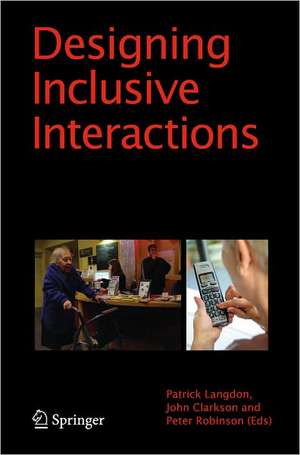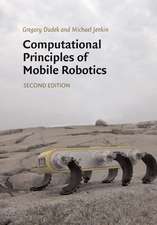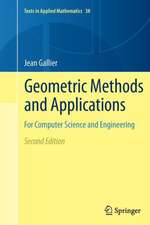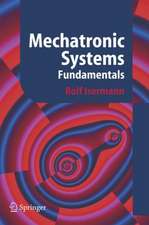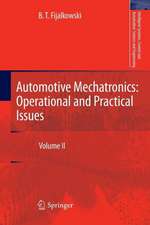Designing Inclusive Interactions: Inclusive Interactions Between People and Products in Their Contexts of Use
Editat de P. Langdon, P. John Clarkson, P. Robinsonen Limba Engleză Hardback – 28 feb 2010
| Toate formatele și edițiile | Preț | Express |
|---|---|---|
| Paperback (1) | 1214.90 lei 6-8 săpt. | |
| SPRINGER LONDON – 4 noi 2014 | 1214.90 lei 6-8 săpt. | |
| Hardback (1) | 1222.31 lei 6-8 săpt. | |
| SPRINGER LONDON – 28 feb 2010 | 1222.31 lei 6-8 săpt. |
Preț: 1222.31 lei
Preț vechi: 1490.62 lei
-18% Nou
Puncte Express: 1833
Preț estimativ în valută:
233.92€ • 243.31$ • 193.11£
233.92€ • 243.31$ • 193.11£
Carte tipărită la comandă
Livrare economică 14-28 aprilie
Preluare comenzi: 021 569.72.76
Specificații
ISBN-13: 9781849961653
ISBN-10: 1849961654
Pagini: 256
Ilustrații: XIV, 240 p.
Dimensiuni: 155 x 235 x 19 mm
Greutate: 0.58 kg
Ediția:2010
Editura: SPRINGER LONDON
Colecția Springer
Locul publicării:London, United Kingdom
ISBN-10: 1849961654
Pagini: 256
Ilustrații: XIV, 240 p.
Dimensiuni: 155 x 235 x 19 mm
Greutate: 0.58 kg
Ediția:2010
Editura: SPRINGER LONDON
Colecția Springer
Locul publicării:London, United Kingdom
Public țintă
ResearchCuprins
Understanding Users for Inclusive Design.- The Effects of Hand Strength on Pointing Performance.- Harnessing Different Dimensions of Space: The Built Environment in Auti-biographies.- Have I Just Pressed Something? The Effects of Everyday Cold Temperatures on exterity.- Understanding the Co-occurrence of Ability Loss.- Accessibility is in the Palm of Your Hand.- Measuring Inclusion.- Quantifying Exclusion for Tasks Related to Product Interaction.- Investigating the Accessibility of State Government Web Sites in Maryland.- Developing User Data Tools: Challenges and Opportunities.- User-pack interaction: Insights for Designing Inclusive Child-resistant Packaging.- A Colour Contrast Assessment System: Design for People with Visual Impairment.- Inclusive Interaction.- Evaluating the Cluster Scanning System.- Facets of Prior Experience and Their Impact on Product Usability for Older Users.- Investigating Designers’ Cognitive Representations for Inclusive Interaction Between Products and Users.- Prior Experience and Learning: Generational Effects upon Interaction.- Assistive Technology.- Expressing Through Digital Photographs: An Assistive Tool for Persons with Aphasia.- An Investigation into Stroke Patients’ Utilisation of Feedback from Computer-based Technology.- How to Make a Telephone Call When You Cannot Operate a Telephone.- Husband, Daughter, Son and Postman, Hot-water, Knife and Towel: Assistive Strategies for Jar Opening.- Email Usability for Blind Users.- Inclusion and Healthcare.- The Involvement of Primary Schools in the Design of Healthcare Technology for Children.- Gaming and Social Interactions in the Rehabilitation of Brain Injuries: A Pilot Study with the Nintendo Wii Console.- Promoting Behaviour Change in Long Term Conditions Using a Self-managementPlatform.
Notă biografică
P. Langdon is Senior Research Associate at the University of Cambridge, UK, and is also External Examiner for the Kings College London and Guy's Hospital Intercollegiate MSc in Assistive Technology. Dr Langdon holds a PhD in Experimental Psychology from the University of Sheffield, UK. His research interests include the properties and design of Haptic interfaces; the representation and formulation of statistical data on disability; and the integration of software development and empirical methodology.P. John Clarkson is Professor of Engineering Design and Director of the Cambridge Engineering Design Centre at the University of Cambridge, UK. After receiving a PhD in Engineering (Electrical Machines) from the university, he spent seven years as Manager of the Advanced Process Group for PA Consulting Group's Technology Division. His current research interests are in engineering design, particularly the development of design methodologies to address specific design issues.P. Robinson is Professor of Computer Technology and Deputy Head of Department at the University of Cambridge Computer Laboratory in the UK. He is also a Fellow, Praelector and Director of Studies in Computer Science at Gonville & Caius College within the university, where he previously obtained his PhD in Computer Science. His research interests include human-computer interaction and electronic design automation.
Textul de pe ultima copertă
Designing Inclusive Interactions responds to the recent changes in the research landscapes in the fields of Human Computer Interaction, Computer Science, and Healthcare as a result of new technology and innovation. Research into accessibility for interface design has always represented an unconventional, multi-disciplinary arena of pragmatic disciplines, such as experimental psychology, engineering design,and rehabilitation practice. It has moved from isolated activities in disparate fields to the more interdisciplinary perspective evident today in areas such as healthcare and inclusive design. As a result of this, there is now a need for the transfer of knowledge and techniques from inclusive design research into the wider community.This book is divided into five areas:• Understanding Users for Inclusive Design• Measuring Inclusion• Inclusive Interaction• Assistive Technology• Inclusion and HealthcareThe papers were selected by reference to the peer assessments of an international panel of reviewers from many key disciplines such as computer science, assistive technology, engineering and product design. This book represents a sample of leading national and international research in the fields of inclusive design, universal access, and assistive and rehabilitative technology. We hope that this will encourage inter-disciplinary research leading to better designs, effectively reducing exclusion and difficulty, in the workplace, at home and at leisure.
Caracteristici
Proceedings of the Cambridge Workshop on Universal Access and Assistive Technology (CWUAAT). Gives developments in the fields of universal access and assistive technology from across the past seven years. Includes supplementary material: sn.pub/extras
